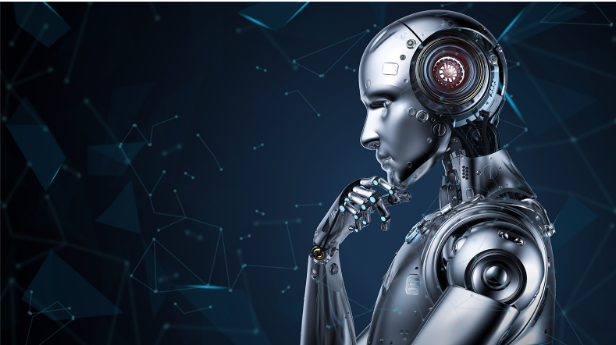Education has changed significantly in recent times due to the growing integration of technology in the classroom. Replacements like interactive whiteboards instead of chalkboards and the usage of Chromebooks instead of textbooks and dictionaries have been made, ultimately reshaping the way students learn and the way teachers instruct. One technology has recently changed the education field significantly: artificial intelligence, or AI for short.
AI has been around for years now in things such as the robot player or NPC in the computer games we play. It is also found in virtual assistance helpers like Alexa, Siri, and Google. However, a recent AI chatbot named Chat GPT has changed the game with its release in 2022. Its essential purpose is to answer any questions or do whatever you, the human, orders it to do. Many people today use it for simple tasks such as explaining a topic they don’t understand or creating ideas for projects, and though this is extremely helpful, there is a growing amount of people misusing it. The people taking advantage of it especially seem to be students who use these AI websites to do their work for them without putting in the effort and time to actually finish their work by themselves. So, has AI influenced education for better or worse?
Well, the answer to that is both. Today, common educational sites that are used in school like Khan Academy, a free online website that offers online lessons in subjects such as math, reading, and science, use AI to help cater to a student’s current ability and help them grow towards where they need to be and beyond rather than have everyone learn the same curriculum when everyone may not be at the same level. To add on to that, in a Forbes Advisor report, a question was asked to teachers regarding AI. One of the questions was, “In your opinion, how has AI influenced the teaching and learning process in classrooms?” and 55% said that AI has improved educational outcomes. Many students even reported back that they use Chat GPT in order to get information and brainstorm ideas, not to use it for cheating reasons unlike most adults think (Harvard Graduate of Education). Also, with technology ever developing, AI is increasing the amount of accessibility people have with education. The most recent achievement being that it has helped people with disabilities gain education through tools that help them communicate their thoughts more effectively and help them solve and answer problems in subjects like math and science.
All the information given so far shows that there is a good side to AI development in the education field, but with this development there is also a downside. Already in classrooms there is a growing usage of technology than before. From books to using pencils and paper, we have slowly transitioned to typing and finding all our resources online. While there are still many classrooms that use basic note taking with pen and paper, there is no denying that the growth of technology has changed greatly. The creation of AI chatbots like Chat GPT have and can create a huge dependency on them for students for answers with its quickness to respond to any prompt you give it. Though a resourceful website that you can get answers from without even having to think about the problem, creating a dependency on these types of websites allows for a deficiency in the amount of learning you get in school because by short-cutting to get the answer, you don’t learn the way you should in order to truly understand the concepts in comparison to learning the actual curriculum and learning how to use problem-solving in real life. Another problem is cheating. Cheating, even before AI, has been a big problem among students. Students tend to do it because they feel stressed about doing well or because they don’t know how to solve the problems. Though it may help a student get answers and help increase their grade, it truly is not the answer to doing assignments and tests. A study done this year shows that K-12 said they mostly use AI chatbots to write assignments like essays and study for quizzes and tests (CNBC). This is why Brielle Turner (10) says, “I will never use AI and never plan on using AI because I don’t want to end up relying on only technology to do my homework when I could be figuring it out and working on it by myself.”
Ultimately, AI in school proves to have both good and bad sides with its growing usage. It provides an opportunity to enhance the education field for all students of all levels. However, while these are good developments, we should be mindful that there are still people misusing it for personal gain rather than to better themselves. So, whether schools decide to utilize AI to its fullest capabilities all depends on school administrators and most importantly the students themselves.




























